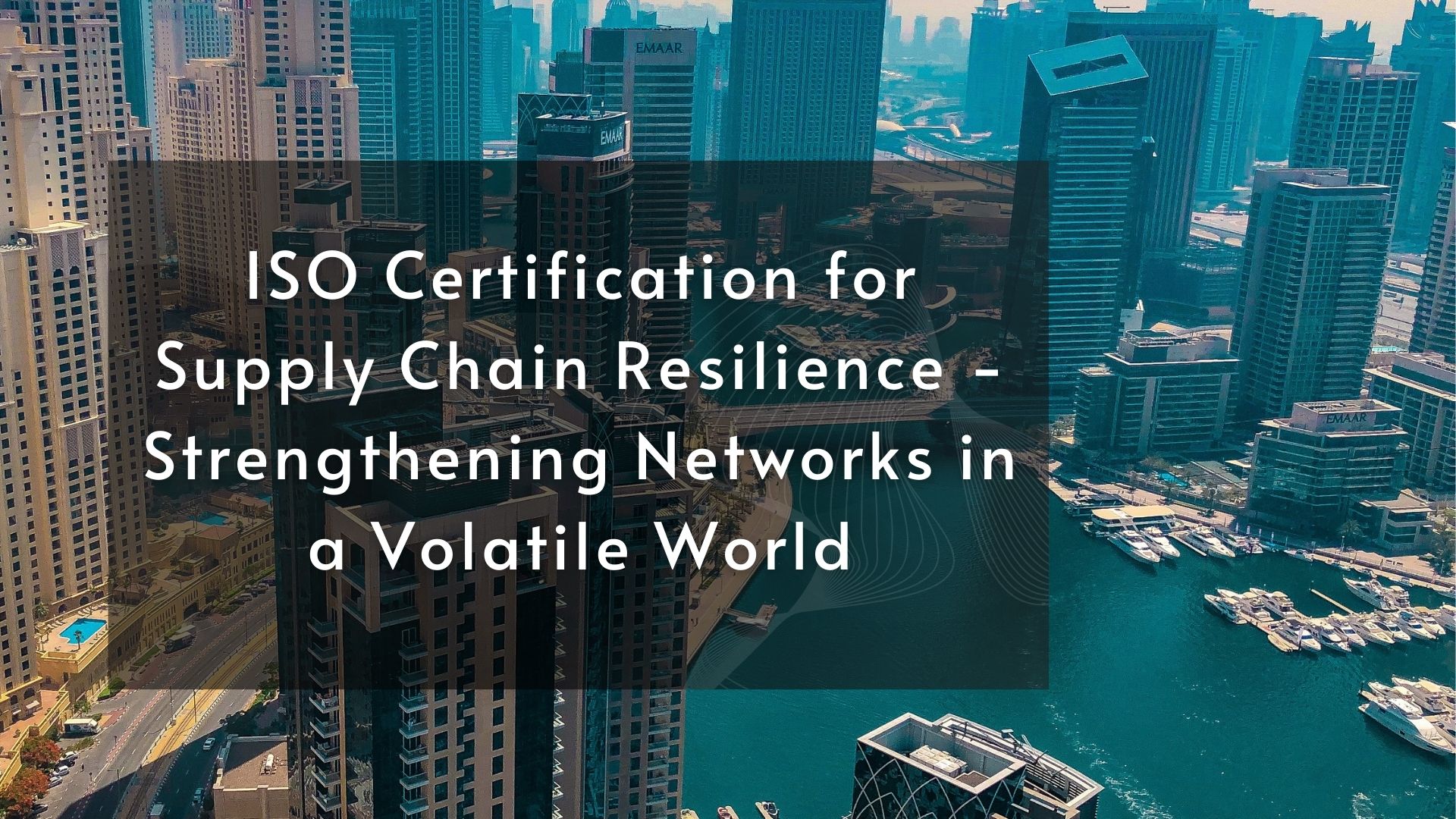Introduction:
In an era marked by global interconnectedness and unprecedented challenges, supply chains have emerged as critical arteries for the flow of goods and services. However, the intricate web of supply networks is susceptible to disruptions ranging from natural disasters to geopolitical tensions and global health crises. To fortify these networks against unforeseen shocks, businesses are turning to ISO certification as a strategic tool for enhancing supply chain resilience.
Understanding Supply Chain Resilience:
Supply chain resilience is the ability of a system to anticipate, prepare for, respond to, and recover from disruptions. In an environment where disruptions have become the norm rather than the exception, fostering resilience has become a strategic imperative for businesses. ISO, the International Organization for Standardization, recognized this need and developed the ISO 22301 standard for business continuity management, providing a framework to enhance an organization’s ability to withstand and recover from disruptions.
ISO 22301: The Cornerstone of Supply Chain Resilience:
ISO 22301 provides a comprehensive approach to business continuity, ensuring that organizations can maintain essential functions during and after a disruption. For supply chains, this means minimizing the impact of disruptions, identifying critical dependencies, and establishing robust contingency plans. Achieving ISO 22301 certification sends a clear signal to stakeholders that an organization is committed to maintaining a resilient supply chain, capable of weathering storms and adapting to evolving challenges.
Benefits of ISO Certification for Supply Chain Resilience:
Risk Mitigation:
ISO 22301 emphasizes risk assessment and management, helping organizations identify vulnerabilities in their supply chains and implement proactive measures to mitigate potential threats.
Improved Operational Efficiency:
By streamlining processes and enhancing communication within the supply chain, ISO certification contributes to improved operational efficiency, reducing the likelihood of disruptions.
Enhanced Stakeholder Confidence:
ISO certification is a globally recognized standard that instills confidence in customers, investors, and partners. It serves as tangible evidence that an organization is committed to maintaining a resilient supply chain.
Legal and Regulatory Compliance:
ISO certification ensures that an organization is in compliance with relevant legal and regulatory requirements, providing a structured approach to meeting obligations and avoiding potential penalties.
Continuous Improvement:
ISO standards are designed to encourage a culture of continuous improvement. Organizations with ISO 22301 certification are better equipped to adapt to changing circumstances and continuously enhance their supply chain resilience.
Challenges in Implementing ISO 22301:
While the benefits of ISO certification are clear, the path to implementation is not without its challenges. Organizations may face resistance to change, resource constraints, and the need for cultural shifts. However, overcoming these challenges is essential for building a resilient supply chain that can withstand the unpredictable nature of today’s business landscape.
Case Studies: Realizing the Impact of ISO Certification:
Examining real-world case studies provides insight into the tangible benefits of ISO certification for supply chain resilience. From global manufacturing giants to agile startups, organizations across industries have successfully leveraged ISO standards to fortify their supply chains and emerge stronger from disruptions.
Looking Ahead: Future Trends in Supply Chain Resilience:
As the business landscape continues to evolve, future trends in supply chain resilience are likely to shape the way organizations approach ISO certification. From embracing digital technologies to fostering collaboration across supply chain partners, staying ahead of the curve is crucial for maintaining a resilient and adaptable supply chain.
Note: You Can Apply for ISO 22000-2018 Certification
Conclusion:
In an era where volatility is the new normal, ISO certification serves as a beacon of resilience for supply chains. By adopting ISO 22301, organizations can proactively strengthen their networks, mitigate risks, and build a foundation for sustainable success in an unpredictable world. As businesses face an ever-changing landscape, the journey towards supply chain resilience through ISO certification becomes not just a strategic choice but a necessity for survival and growth.






